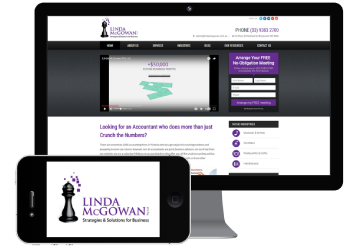The 10 Don'ts of Selling Your Practice
 With the baby boomer generation finally retiring over the next few years we expect to see flood of accounting practices for sale. It certainly hasn’t happened yet but in anticipation I thought I would share with you the top ten mistakes vendors make when selling their practice.
With the baby boomer generation finally retiring over the next few years we expect to see flood of accounting practices for sale. It certainly hasn’t happened yet but in anticipation I thought I would share with you the top ten mistakes vendors make when selling their practice.
1. Not Knowing the Practice Value
Although the open market ultimately determines the final price, a vendor needs to know the approximate value of their practice before placing it on the market. Many vendors have unrealistic expectations when it comes to cashing in their life’s work and reject a genuine offer only to find the next offer is even less from a buyer who is less suitable. You wouldn’t sell your home without researching the market so speak to someone qualified to give you a realistic valuation.
2. Not Getting the Practice ‘Investor Ready’
Prior to listing the practice for sale you need to do some planning and preparation. You don’t just sell or auction a house. You plan the open for inspections, clean and tidy the garden and have a marketing strategy in place. Similarly, you need up to date, accurate financials including fee summaries, profit & loss statements, tax returns, a list of debtors, creditors and furniture & equipment. Being prepared helps maintain the momentum of the deal and limits the number of hurdles in the process.
3. Blinkered Vision
Look at the business from the buyer’s perspective and recognize the deficiencies. You need to address these issues to remove the buyer’s concerns. The buyer isn’t going to focus on the positives, they are concerned with the negatives that could be the level of debtors, low charge out rates or your dependence on the top 10 client groups. Your fees might be in decline or you have an ageing client base that could disintegrate over the next five years. Before you think about selling get these issues out in the open and look to solve them.
4. Chemistry
Get to know the buyer and make sure the due diligence process is a two way street. A buyer will grill you but you also need to put them under the bunsen burner and ask the most important question, “Why are you buying my practice and what do you expect to achieve?” This could open Pandora’s box because some buyers simply think that ‘bigger is better’ or that the merge will lead to economies of scale and savings. This is not necessarily the case and identify why they aren’t achieving the same level of organic growth as you? Maybe they want your staff to help with their capacity problem and you need to read between the lines because the real reason might be concealed such as mining the financial planning opportunities (which may not be a bad thing). By knowing the buyer, their motives, interests and their background you will be better equipped to make an informed decision if they are the right group to take your practice to the next level. Remember, you will probably have retention funds at risk so it’s in your best interests to get the chemistry right so the transition is seamless.
two way street. A buyer will grill you but you also need to put them under the bunsen burner and ask the most important question, “Why are you buying my practice and what do you expect to achieve?” This could open Pandora’s box because some buyers simply think that ‘bigger is better’ or that the merge will lead to economies of scale and savings. This is not necessarily the case and identify why they aren’t achieving the same level of organic growth as you? Maybe they want your staff to help with their capacity problem and you need to read between the lines because the real reason might be concealed such as mining the financial planning opportunities (which may not be a bad thing). By knowing the buyer, their motives, interests and their background you will be better equipped to make an informed decision if they are the right group to take your practice to the next level. Remember, you will probably have retention funds at risk so it’s in your best interests to get the chemistry right so the transition is seamless.
5. Sell to the Wrong Buyer
Currently there is about 20 buyers for every vendor but that won’t last when the baby boomers decide to cash in their chips. Most buyers have never been through the acquisition process before and they can get bogged in the numbers with their due diligence process turning into a forensic exercise. There are plenty of ‘tyre kickers’ who don’t have finance in place or they just want to compare notes. Just because someone in your discussion group expresses an interest in buying fees doesn’t mean they are ready, will pay the asking price or have the chemistry to make it a great fit. Selling to a poor performer spells danger and remember, you need to keep running your practice during the often time consuming negotiation and due diligence process.
6. Being Your Own Worst Enemy
Many practitioners feel that no one knows their practice like they do. They think brokers are a waste of money and decide to do the deal themselves, without any help. As the old saying says, "The solicitor who represents himself has a fool for a client." With an over-supply of buyers there is no problem finding one, but do they have the funds, the right chemistry, compatible charge out rates and expertise to deal with your clients? Do you understand retention, hand over and the contractual issues regarding debtors, work in progress, client files and your computers and furniture? If you want to draft your own contract of sale be careful because we often hear of these deals ending in tears and large legal bills. If you don’t really know the buyer you might find the moment they take over your practice they change every system in the place and start aggressively mining your client base for extra services. You need a water tight contract to protect both parties from the myriad of things that can go wrong. Would you sell your own home? Unless you’re a real estate agent, I hope not. That being the case, why would you sell your life’s work without engaging an external advisor such as a professional business broker?
7. Not Understanding the Structure of the Deal
The structure of the deal is important and there is truth in the saying, "You can name the price if I can name the terms." You might be ecstatic about the price only to find that the devil is in the detail of the contract. How many free hours do you need to provide as part of the hand over and what terms will you be employed post settlement? What salary, incentives, term or contract hourly rate will apply? Will your staff still have a job and will you ‘sell’ the deal to your clients as a merge, sale or takeover?
8. Not Being Able to Walk Away From the Deal
Too many vendors get so involved in putting the deal together that they don't see the big picture. Since they have invested a lot of time, effort and expense it's often difficult for them to see if the deal is a good one. If the deal isn't right, and can't be fixed, there is no other choice but to walk away. It's much better not to do a deal than to do a bad one.
9. Waiting Too Long to Sell
Too many practitioners wait until the last minute to sell out. They wait until the business is in decline, they are completely burnt out or their partnership has soured. The time to sell is BEFORE a crisis emerges and while the fees and profits are showing an upward trend. The other big mistake is thinking you can list the practice for sale in May or June and expect to have it settled on June 30. It may have taken 25 years to grow and develop and while a quick sale is possible in this market, those practitioners who plan the sale endure less stress and disruption to the business. Selling your practice is a process that can take several months not several days.
10. Changing Your Mind
If there is even a hint of doubt about selling the practice, don't begin the process. The last thing you need is regrets about having nothing to do every day, a colleague saying the price was too low or having clients question your choice of buyer. Be sure you are ready to sell and if it is a good deal from the beginning, don't let outsiders or self-doubt influence the sale.
If you’re thinking of selling your practice call us today on (03) 9824 5300 for an obligation free discussion.
Pat Camm






-P-J-Camm-banner.jpg)









Leave a Comment